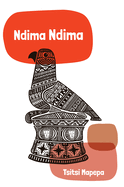
Debut Zimbabwean author Tsitsi Mapepa invitingly reveals almost a quarter-century of events--both quotidian and transformative--that shape the women of the Taha family in Ndima Ndima, presented as interlinked stories. Mapepa writes with a welcoming, unadorned intimacy, recounting experiences as if talking with a friend, ensuring every word is heard clearly.
In autumn 1990, Zuva moves with her husband, Mwedzi, and their four daughters from a small city to Harare. Zimbabwe's capital then is still "new raw land" surrounded by dense grasses where snakes and other dangers lurk. With a sickle and tenacity, Zuva tames the bush, clearing hectares of land to nurture a garden while creating safety around the home that Mwedzi builds himself. The neighborhood, following Zuva's unbending leadership, is eventually able to rid the bush of more brutal threats--particularly men eager to attack women out alone. Here, Zuva's girls, Ruth, Hannah, Abigail, and Nyeredzi--from oldest to youngest--will grow up, each coming of age into vastly different futures. Mapepa bestows her narrative spotlight on Zuva and Nyeredzi: Zuva with her powerful past as warrior and former royal, Nyeredzi with her uncompromising strength and inherited wisdom. Mapepa follows their unbreakable, complicated mother-daughter bond across decades and distance.
Like her literary Zimbabwean compatriots NoViolet Bulawayo and Tsitsi Dangarembga, both authors of Booker Prize shortlisted titles, Mapepa gifts savvy international readers with illuminated windows into their mutual native country. Beyond the novel's culturally and historically specific details, Mapepa's characters inspire empathy as strong mothers, daughters, sisters, and women in a borderless, (still) male-dominated world. --Terry Hong

